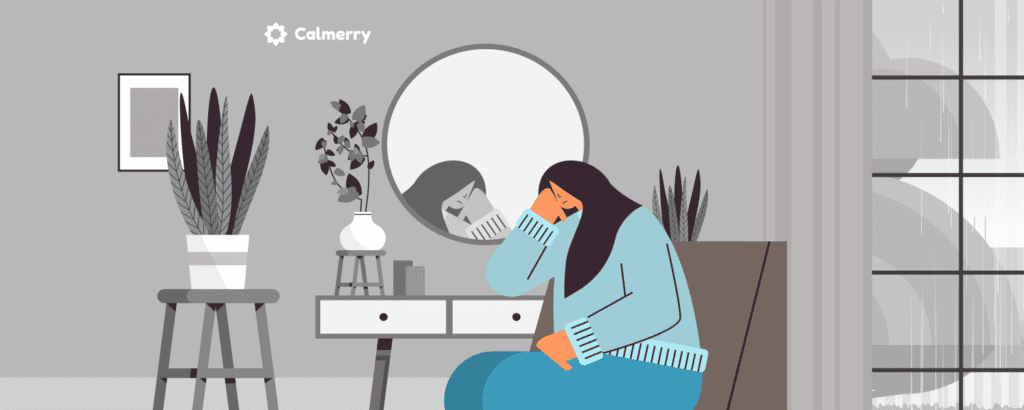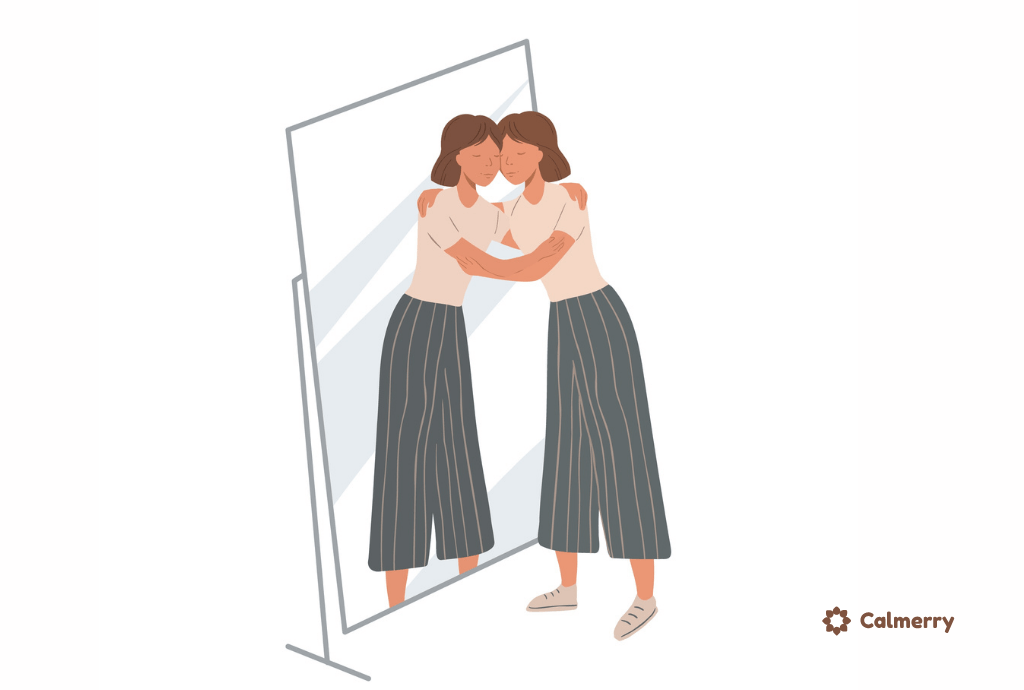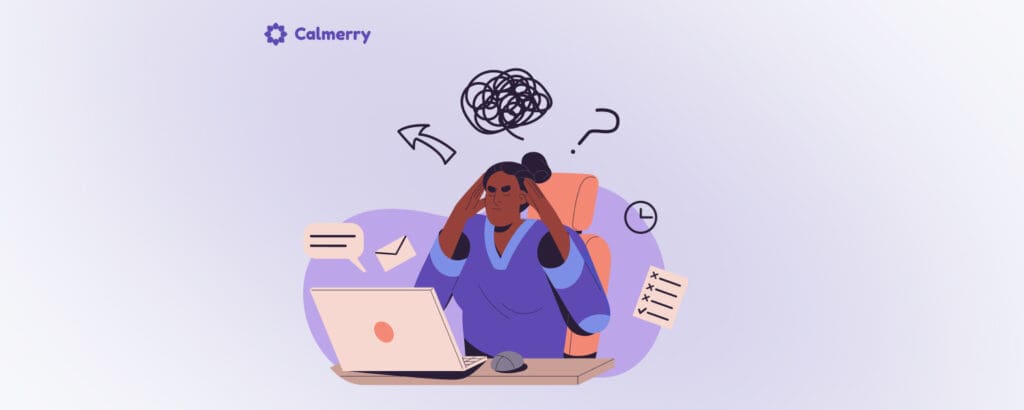What Does The Research On Abortion and Mental Health Say?

In this article
Women’s rights to abortion have been a point of contention since the June 2022 Supreme Court decision to overturn Roe v. Wade, which protected access to abortion at the Federal level. Following the decision, some states enacted trigger laws that automatically banned abortions, and others put laws into place that limit abortions to the first 15 weeks, or in some cases, the first 6 weeks, of pregnancy.
On the other hand, some states have chosen to legally protect abortion rights, by creating state laws that address this right or by recognizing women’s rights to abortion under their Constitutions, in the aftermath of the overturning of Roe v. Wade.
As states make changes to their laws in response to the recent Supreme Court decision, the nation is quite divided. On the one hand, anti-abortion activists have supported the decision, labeling abortion as a moral wrong and an injustice against an unborn baby. At the opposite end of the spectrum, women’s rights advocates argue that the overturning of Roe v. Wade interferes with women’s reproductive rights and makes forced pregnancy a reality.
One concern that both sides of the argument have addressed is the belief that abortion and mental health go hand-in-hand. Anti-abortion activitsts argue that having an abortion is damaging to mental health, whereas those who favor the protection of abortion rights fear that limiting access to abortion will have a negative effect on the psychological health of women.
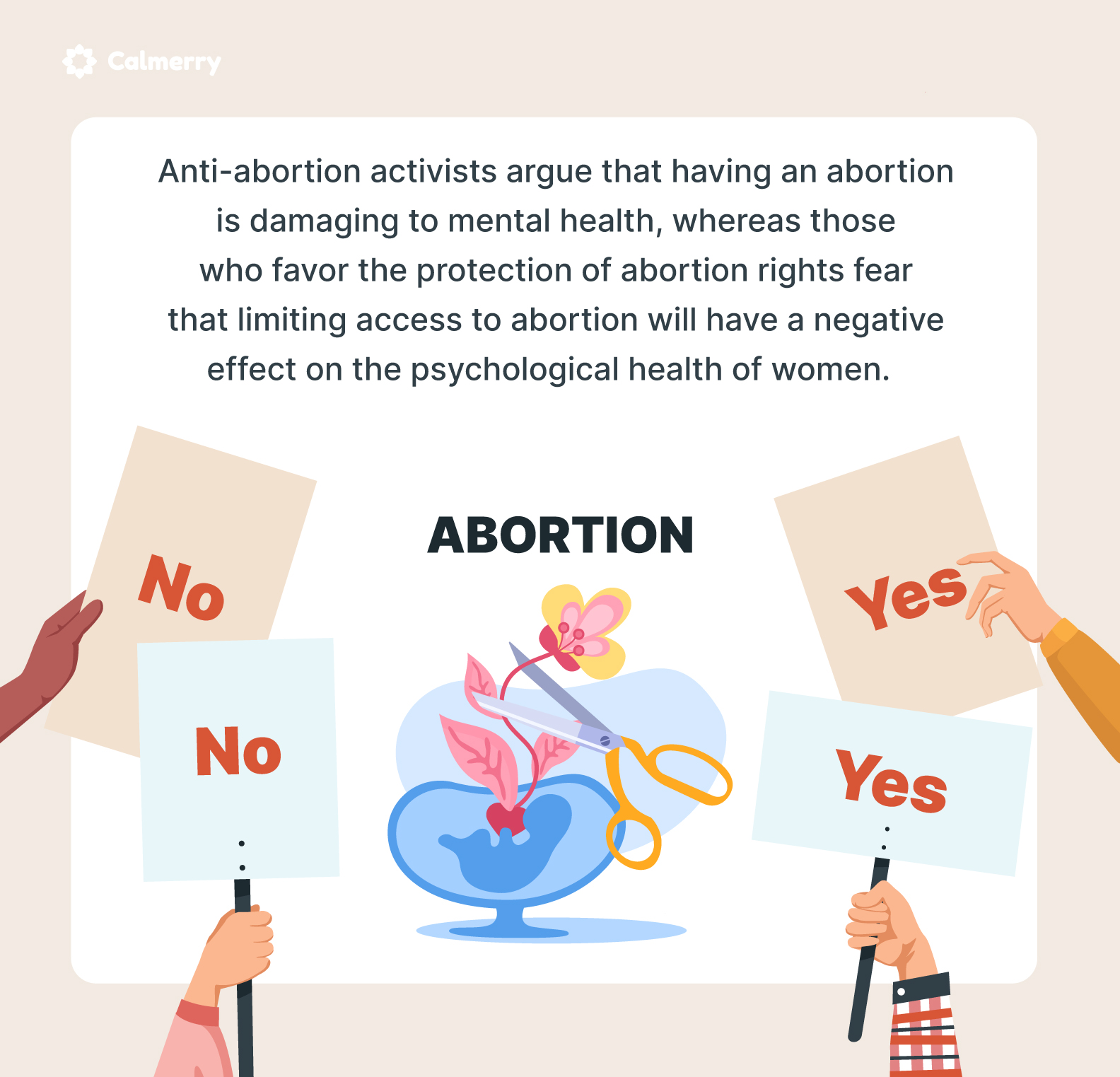
So, where does the truth lie? The research, supported by experts at Calmerry, on abortion and mental health offers some answers.
Psychological effects of having an abortion
Before exploring the mental health effects of reduced access to abortion, it is important to explore the psychological effects of undergoing an abortion procedure. As with any contentious topic, it is critical to take a look at both sides of the argument.
One recent study evaluated the psychological effects of abortion and found that 57% of women had no distress following an abortion. Furthermore, 11% had typical levels of distress, as measured according to a standardized instrument. Of the 32% who had elevated levels of distress, many were found to have had a spontaneous abortion (miscarriage) or to have had a thearapuetic abortion, which was necessary for medical reasons.
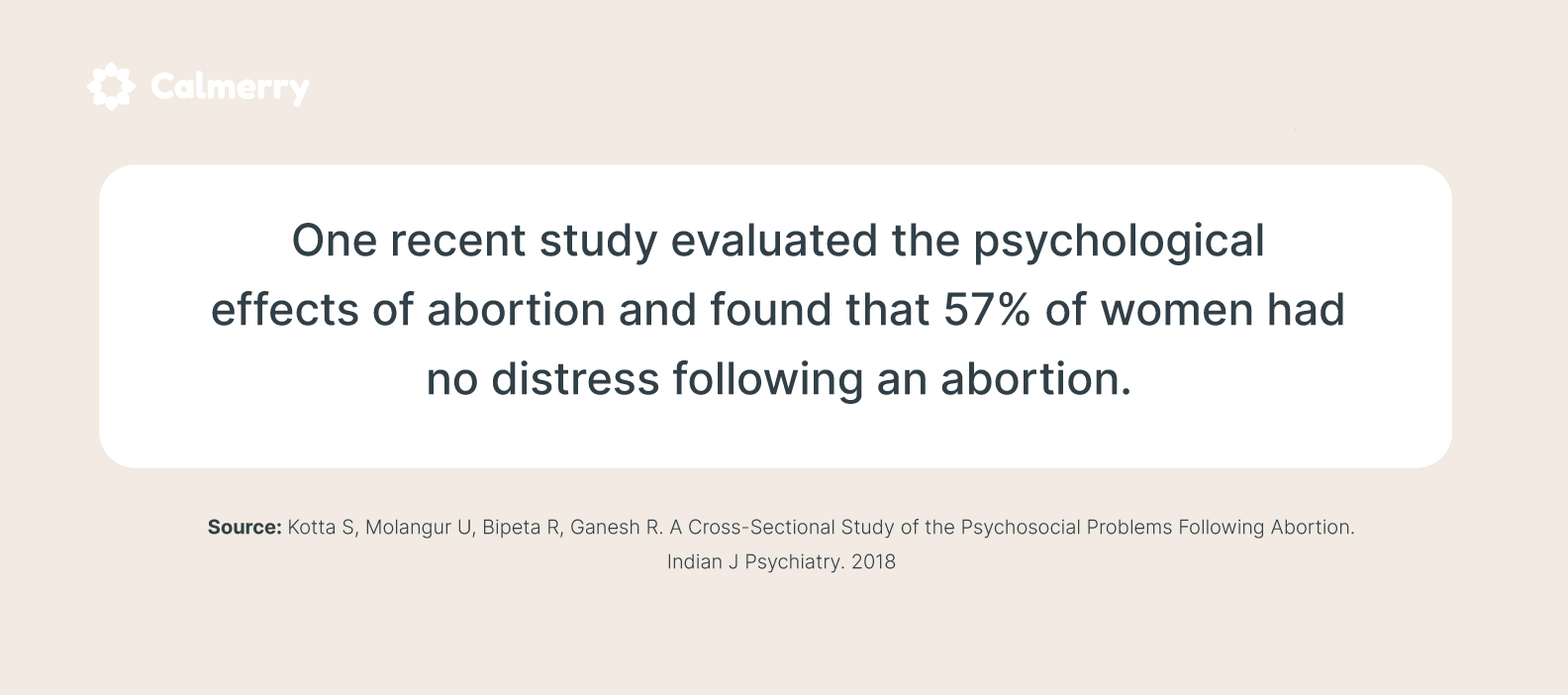
Women who elected to have an abortion had significantly lower levels of psychological distress when compared to those who had a miscarriage or who had undergone an abortion for medical reasons. This finding is consistent with another study which revealed that following an elective abortion, women tend to experience an improvement in psychological functioning because of a reduction in symptoms of depression and anxiety.
While some women may experience an improvement in mental health after abortion, it is also critical to note that each woman’s experience will be different, and there are mixed findings on abortion and mental health. For example, there is evidence that women who have an abortion are at increased risk of mental health problems compared ot those who do not, and women with certain risk factors, like pre-existing mental health conditions, are more likely to have negative responses to abortion.
Women who are uncertain about their decision or who experience pressure from their partner are also at increased risk of having a negative psychological reaction to abortion.
What can be concluded from the research is that some women, do, in fact have a negative reaction to abortion. This is why it is important for women to have access to pre-abortion counseling, as well as information about mental health resources they can utilize to help them cope, should they choose abortion or experience a miscarriage or therapeutic abortion.
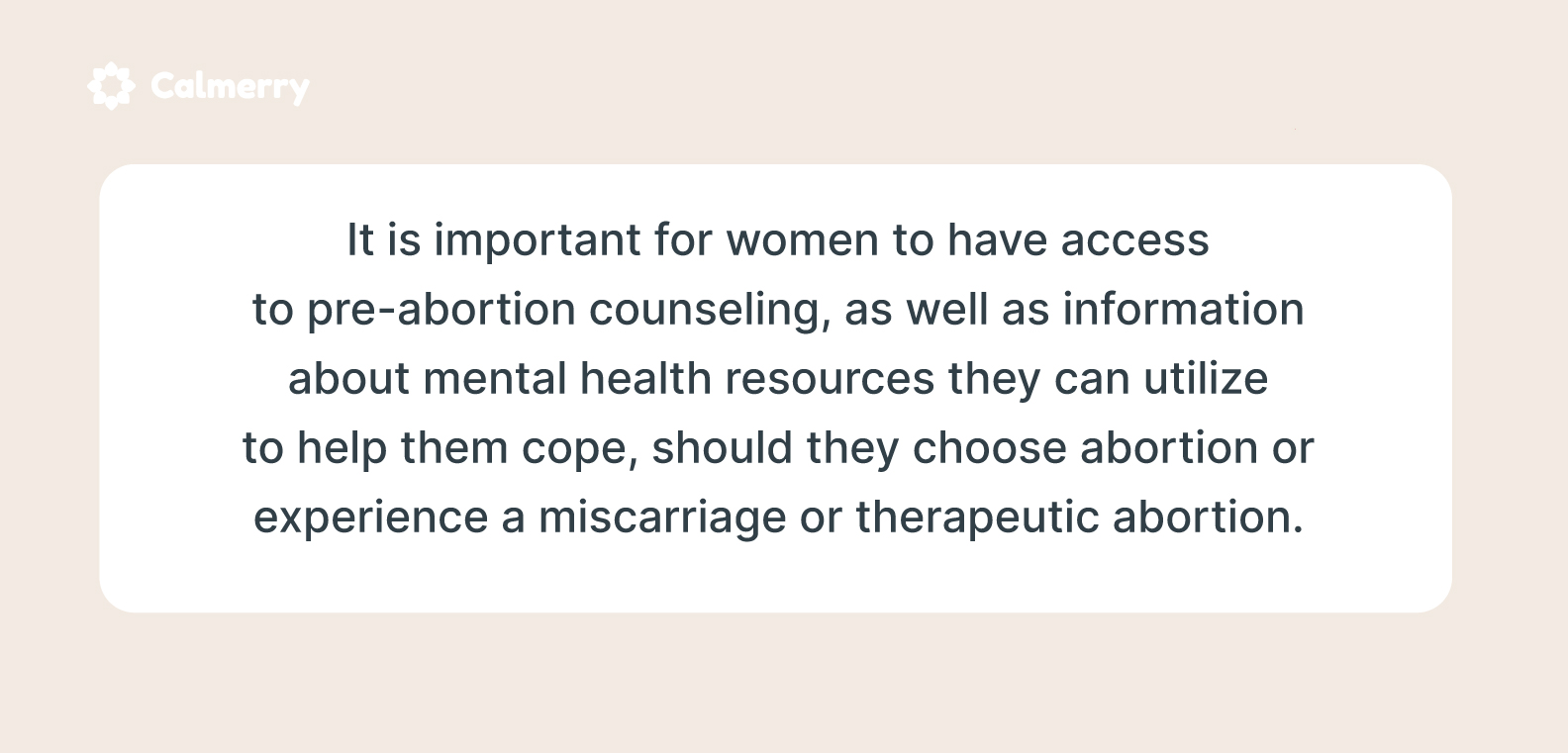
Mental health effects of restricted abortion access
Having an abortion can be a stressful experience, especially for women who lack support from their partner or who have pre-existing mental health conditions, but the experience of needing or desiring an abortion and being denied access to one can also be distressing.
A 2017 study in the journal JAMA Psychiatry evaluated the effects of being denied an abortion, by comparing a group of women who received an abortion just before a facility’s gestational age cut off, to a group who were denied an abortion because the gestational age of the developing baby was too advanced. Findings revealed that compared to women who received an abortion, those who were denied access to abortion experienced significantly higher levels of anxiety, as well as reduced self-esteem and life satisfaction. Psychological adjustment did improve over time.
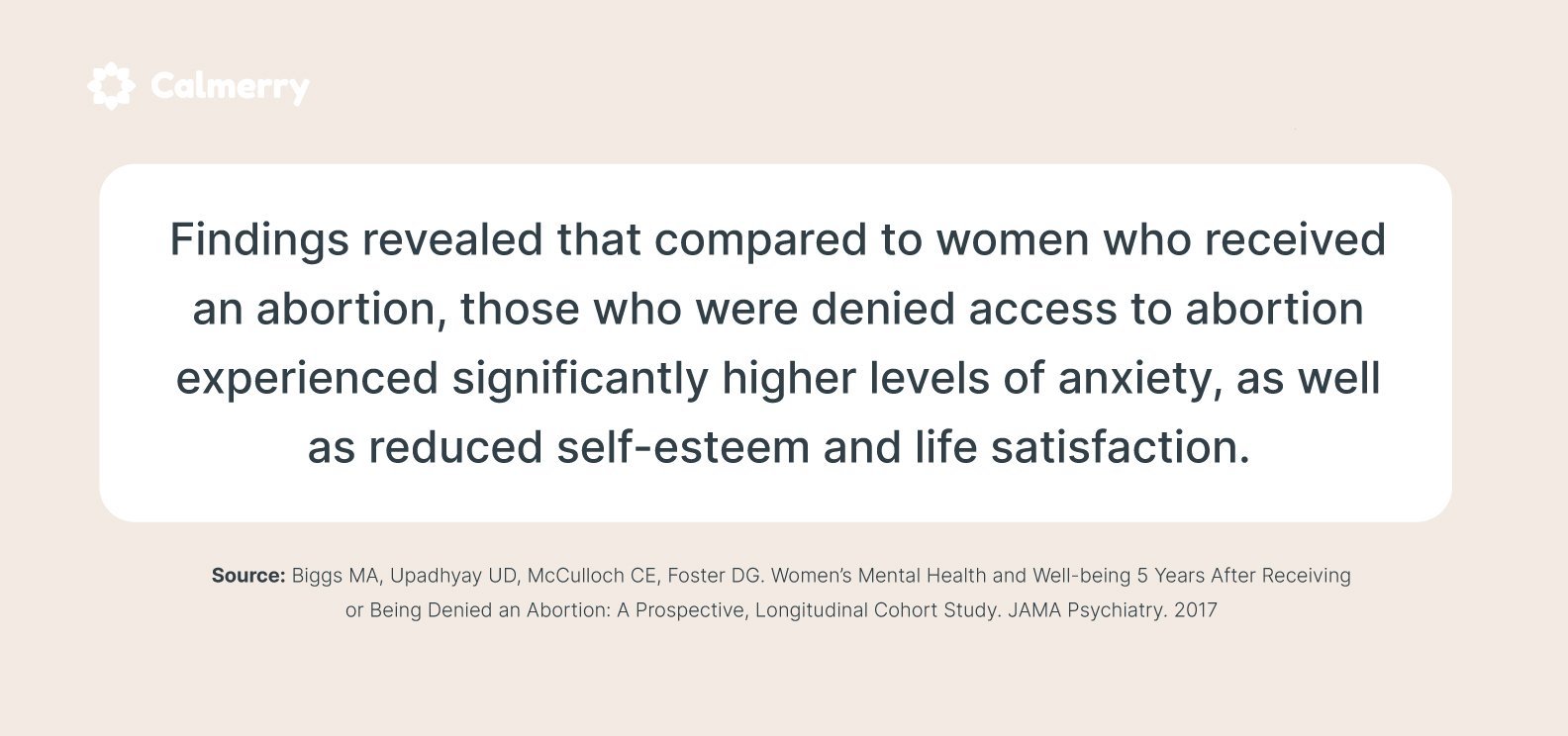
Aside from this study, there has been limited research exploring the effects of denial of abortion on a woman’s mental health functioning. One additional study did explore the effects of having an unwanted pregnancy, and results revealed that compared to women with planned pregnancies, those who carried an unwanted pregnancy to term experienced higher levels of depression.
This study was unique, as it was longitudinal in nature and explored the lasting effects of unintended pregnancy. Women in the study were in their 70s, and those who had carried an unwanted pregnancy to term were significantly more likely to experience depression, demonstrating that carrying an unintended pregnancy to term can have lasting effects. In the context of addressing these mental health concerns, it’s worth considering the potential benefits of online therapy for women who have gone through such experiences.
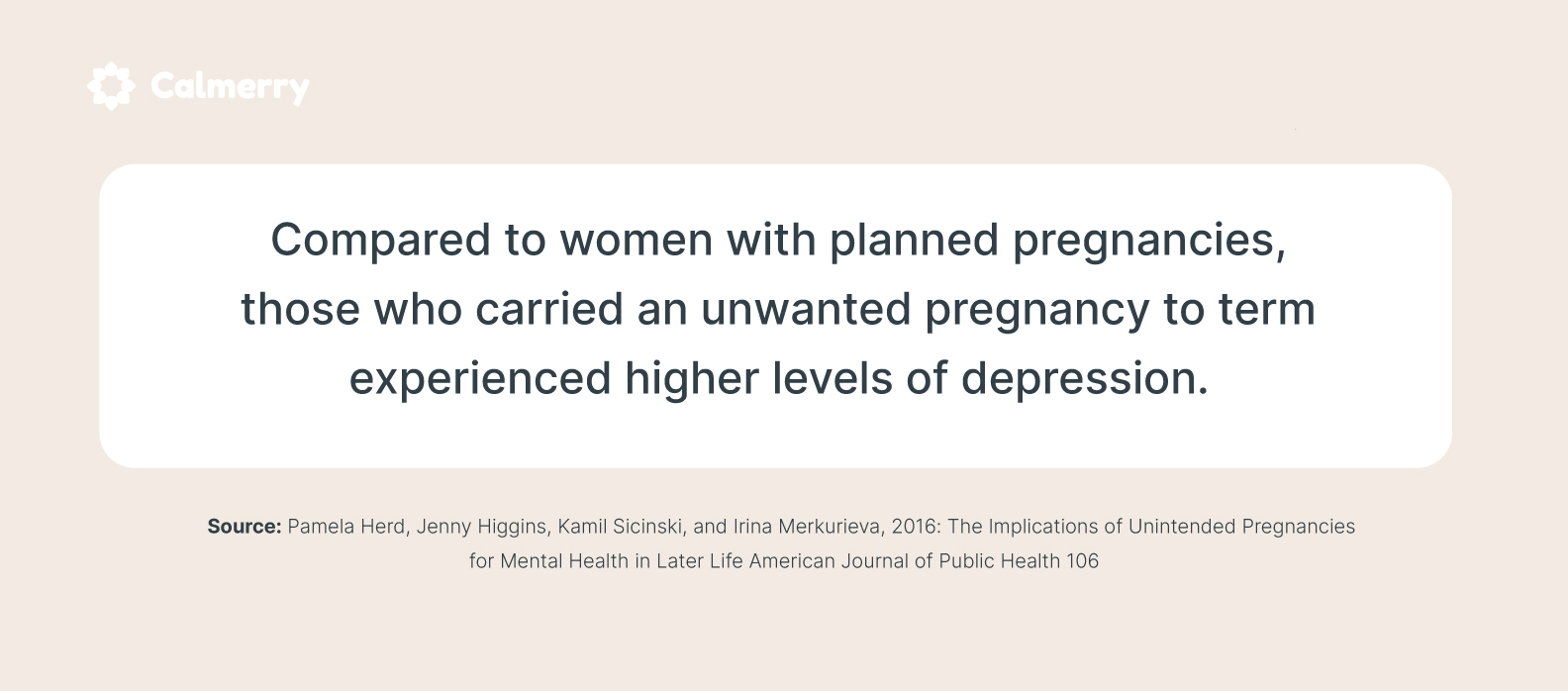
Distress associated with unplanned pregnancy
Beyond the fact that a forced pregnancy can be damaging for mental health, being denied access to abortion can create significant distress, especially for mothers who feel they are not able to care for the child. Research has found that women who choose to terminate a pregnancy often do so because they want to be good parents. They feel that it is their job to be able to provide children with a loving, stable home, and if they already have children, they may terminate an unplanned pregnancy because they do not feel they are capable of taking on an additional child.
For a mother who does not feel she can care for an additional child, being denied access to abortion can create significant distress, as she may worry how she will care for her children or provide financially when an additional child is added to the family. Denial of an abortion can be especially distressing for women who live in poverty.
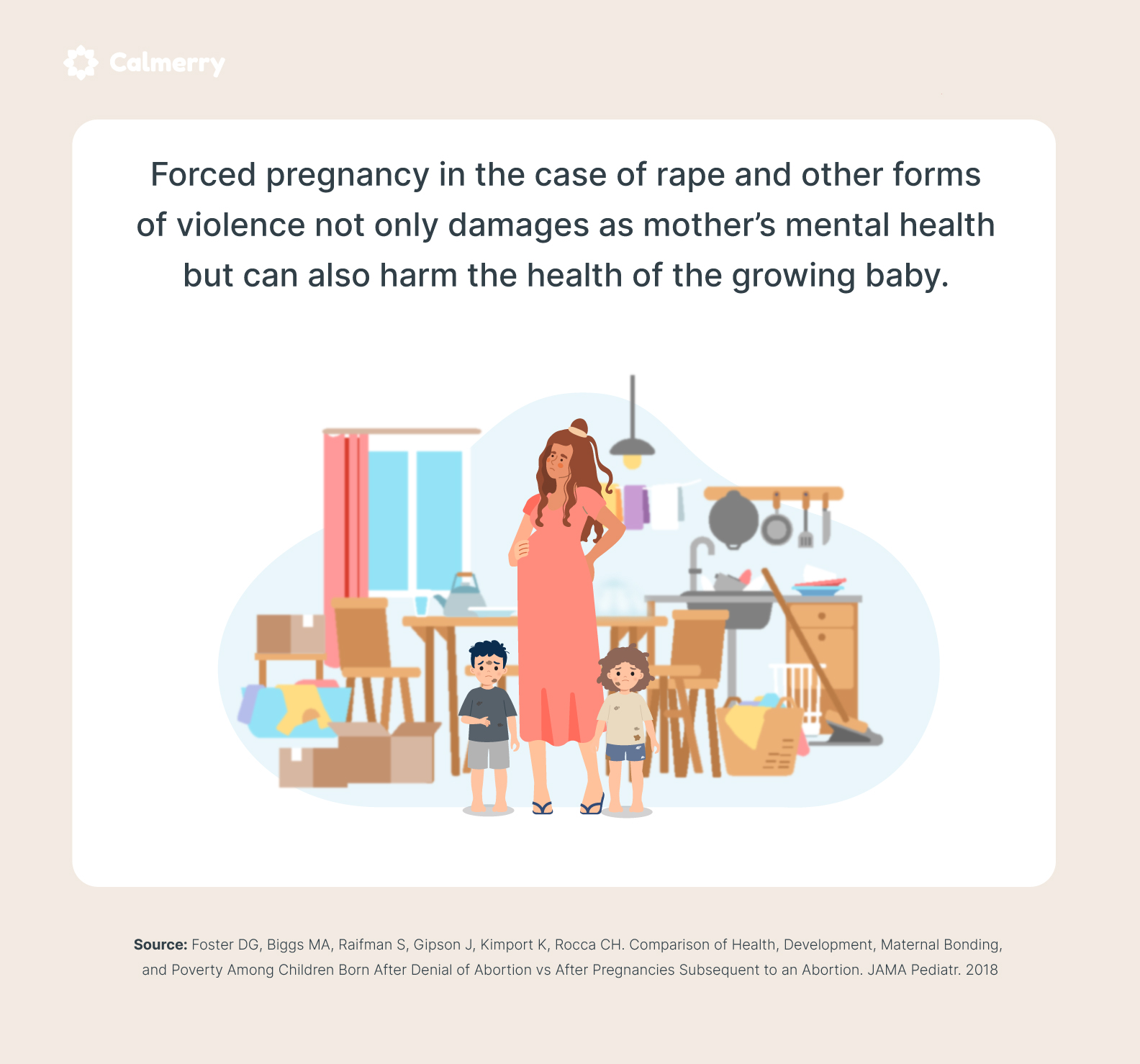
In fact, one recent study found that children born to mothers who were denied abortion were more likely to be in poverty, and their families were at increased risk of being unable to afford basic expenses. Denial of abortion was also associated with reduced bonding between mother and baby.
For children born to mothers denied an abortion, distress can be long-lasting, demonstrating that abortion and mental health affects not only mothers but also their children. For example, children of mothers who were denied an abortion are of lower socioeconomic status during adulthood; they have worse educational outcomes and are less likely to be employed. They are also at increased risk of teen pregnancy.
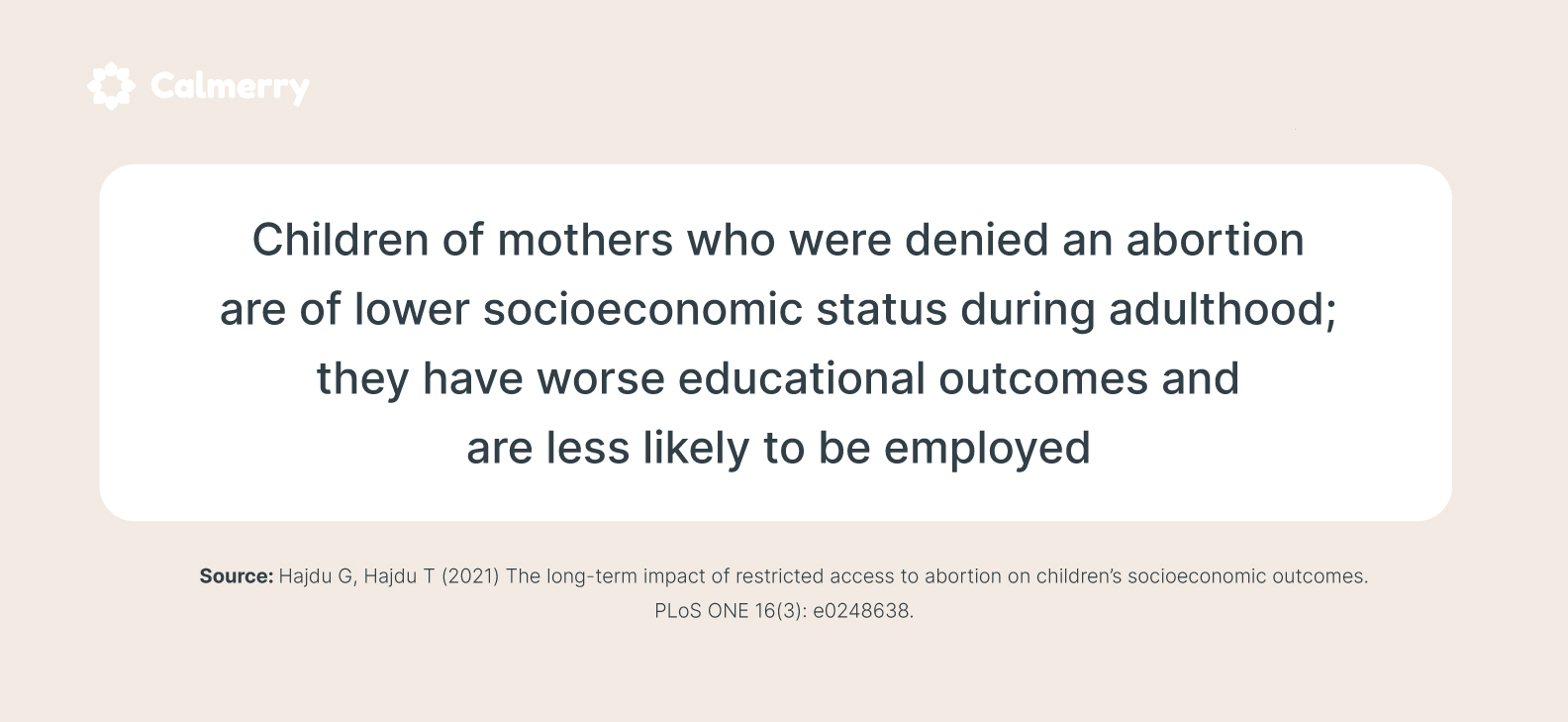
Special cases: rape and violence
Women who are denied access to abortion following a pregnancy resulting from rape can experience significant distress if they carry the pregnancy to term. Interviews with women who have been victims of sexual violence have revealed the following negative effects:
- They feel angry, hopeless, and nervous when they find they have become pregnant following a rape.
- They feel ashamed and may isolate themselves.
- Some women may attempt suicide when they learn that they are pregnant as a result of rape.
Given these negative emotions associated with being pregnant from rape, it is reasonable to assume that women are likely to experience negative mental health effects if they are raped and made to carry a pregnancy to term.
Research has demonstrated that the mental health health consequences of physical and sexual violence include depression, anxiety, PTSD, and suicide. These problems are exacerbated during pregnancy, and women who carry a baby to term when they have been victims of domestic violence are more likely to experience preterm birth and to give birth to a baby who is small for their gestational age. Forced pregnancy in the case of rape and other forms of violence not only damages as mother’s mental health but can also harm the health of the growing baby.
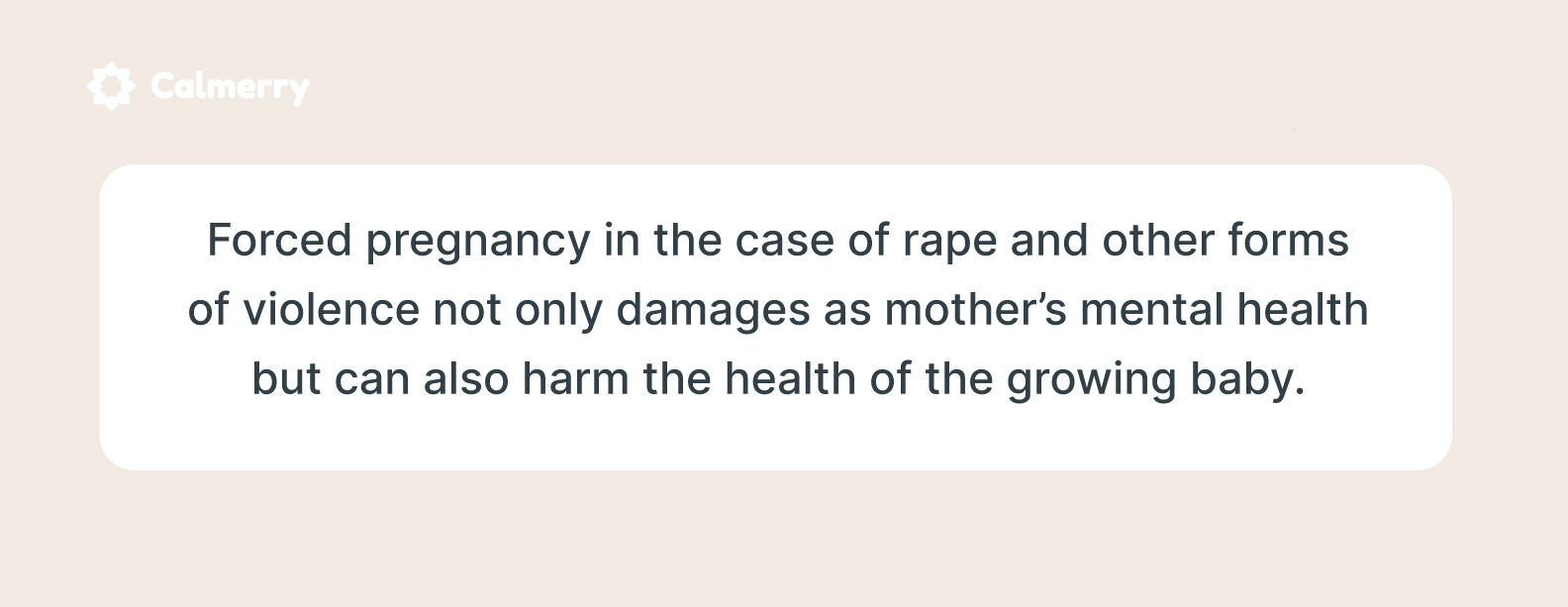
The bottom line
Making the decision to terminate or carry an unplanned pregnancy is complicated and deeply personal. Some women may wish to terminate an unplanned pregnancy, because they do not feel they are able to care for the baby. Others may feel compelled to seek an abortion because of serious issues, such as rape or domestic violence. In these instances, a forced pregnancy can be deeply distressing and can damage a woman’s mental health.
Certainly, following through with an abortion can be also be distressing. A woman may feel pressured to have an abortion in order to please her partner, or she may be unsure of her decision. Perhaps she feels an emotional bond to the baby, but knows she is not in a position to care for a child.
Ultimately, the decision to have an abortion or to carry a pregnancy to term is personal to the woman carrying the unborn baby. Following through with an abortion has the potential to cause distress, in which case counseling and abortion support groups are available. In the best case, a woman who feels compelled to have an abortion will have the information she needs to make an informed decision, as well as the support she needs to cope with her decision.
On the other hand, with the recent overturning of Roe v. Wade, some women may experiences significant distress when denied access to abortion. They may be forced to carry a child they do not feel capable of caring for, or they may find themselves unable to terminate a pregnancy after an instance of physical or sexual violence. As time goes on, policy makers and advocates will be able to conduct additional research to explore the long-term mental health effects of being denied an abortion.
online therapy
live video session
